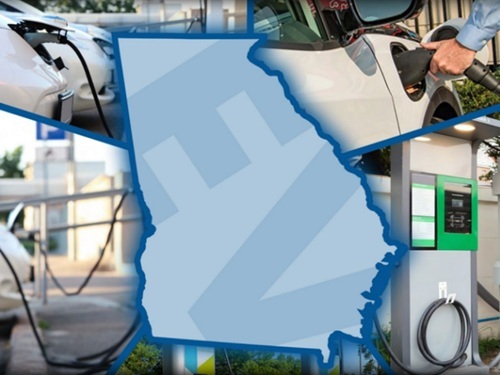The Illinois Department of Transportation is accepting applications from municipalities and local governments, as well as nonprofit agencies, for grants to paratransit operations serving senior citizens and individuals with disabilities.
[Above photo by the Regional Transportation Authority]
Through its Consolidated Vehicle Procurement program, Illinois DOT purchases accessible paratransit vehicles on behalf of eligible recipients using various federal funding sources. The program’s application deadline is May 2, with grant awards occurring this summer.

“Public transportation is an essential service throughout the state in rural, suburban and urban communities,” explained Omer Osman, Illinois DOT secretary, in a statement.
“These grants – and the paratransit vehicles they provide – are an important part of our continued efforts to ensure everyone has safe, equitable access to the transportation they depend on,” he said.
The Illinois DOT added that is evaluates paratransit grant applications on a number of criteria:
- Level of existing paratransit service.
- Equipment utilization, such as vehicle miles traveled or number of one-way trips per day.
- Asset maintenance, including the provider’s maintenance policy, preventive maintenance tactics, and vehicle maintenance recordkeeping.
- Management capacity, such as the provider’s driver training policy.
- Coordination efforts, including notification to other transportation providers and participation in local public transit systems.
There has been a greater emphasis on addressing the transportation needs of senior citizens and disabled individuals over the last year.
For example, in September 2021, the Washington State-based Disability Mobility Initiative (DMI) issued an 82-page report urging the state to undertake “inclusive” transportation planning measures and shift more funding to serve the needs of “non-drivers.”

“For too long, transportation policy has been written by and for drivers. For those of us who cannot drive or cannot afford to drive, this creates major barriers for us to access school, jobs, medical care, grocery stores, religious services and everywhere else we need to go in order to fully participate in our communities,” the group said in a statement.
“To ensure this redistribution of resources, non-drivers must have a seat at the table,” DMI emphasized. “This begins with transportation planners and decision makers viewing us as the experts we are. Our knowledge is rooted in years of navigating sidewalks, buses and paratransit systems that most transportation professionals rarely use. We must … meaningfully contribute to policy and planning decisions.”
In February, the Minnesota Department of Transportation and the Massachusetts Bay Transportation Authority deployed online surveys as a way to improve transit service coordination for elderly, disabled, and low-income riders.
The Minnesota DOT said it used its online rider survey to poll both transit providers and riders in an 11-county area spanning southeastern Minnesota to develop a Local Human Service Transit Coordination Plan.
Meanwhile, the MBTA used its online survey to identify existing “communication” barriers for older adults and people with disabilities so the agency can develop better travel-training-related materials so that they are more inclusive, while also gaining feedback on accessibility-related decisions.
 States
States
Podcast: Flashing LED Lights Can Boost Roadway Safety
December 5, 2025 States
States

